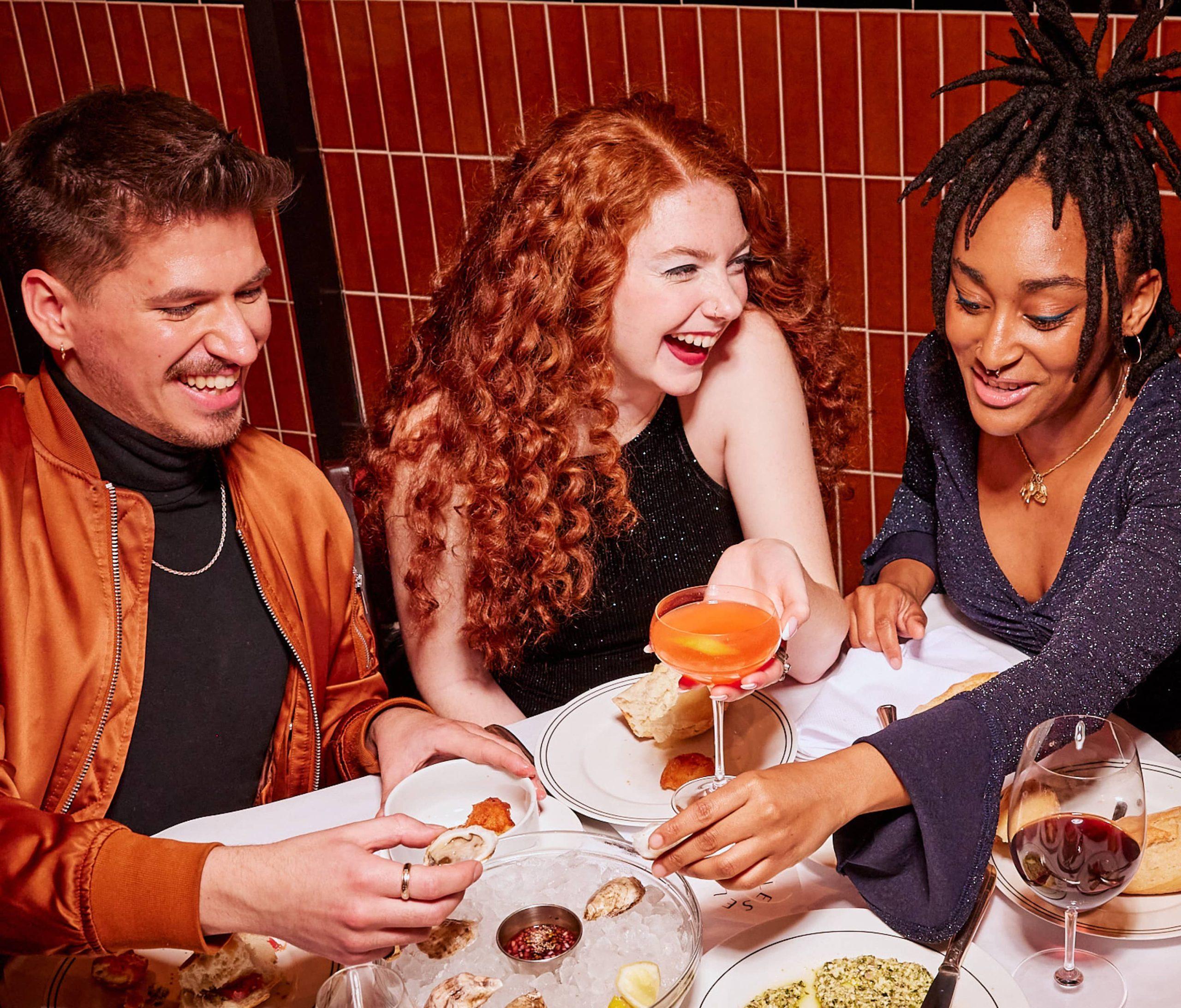Christian Puglisi. A name you may (or may not) have heard of. Up until the Danish (but Italian-born) Michelin starred chef opened his first restaurant in Denmark, his most impressive achievement was that he’d been through the prestigious kitchens of both Noma and elBulli. But then, in 2010, he opened his own venture: Relae. Six years later, The World’s 50 Best Restaurants and the Sustainable Restaurant Association deemed Relae the most sustainable restaurant in the world. Not once, but twice.
It’s a remarkable achievement. But once you get to grips with what happens backstage at Relae, and the deepest motivations of the man pulling all the strings, it’s easy to see how the restaurant got this far.
The restaurant designs its own chefs’ aprons, made with dirt and water-repellent fabrics so as to cut down on water used when washing; strongly believes in the ethics of Fair Trade products; grows a large proportion of its ingredients; and is run on hydro-electric power. Let’s just ask: How many restaurants do you know that feed their chickens – hand raised – on used coffee grounds? What about those that bake their own naturally leavened sourdough bread in their own bakery 2 kilometers up the road?
The thing is, the restaurant’s ethics – and reasons behind their success – goes far beyond close attention to food sourcing and environmental responsibility. Puglisi says the ideas behind his restaurant are not based on the idea that sustainability a series of well-to-do actions, but rather an entire lifestyle.
‘Sustainability,’ he says, ‘is a responsible state of mind. I am a father of one and an employer of 100 employees and I feel an enormous responsibility towards my family and my staff to make the right decisions every day. The right decision is a sustainable one – one that invests in the future, whether it be in future relations, people, or the environment and the planet we live on and from.’
All of a sudden, one begins to understand the thinking behind the restaurant’s name. Relae or, in English, ‘Relay’. It suggests that its function is to pass something on, whether that be a fine dining experience or practical notions of how gastronomy and sustainability can become concrescent. All while maintaining as small an impact on the environment as possible. But, because of Christian’s ethos, Relae has outgrown its name due to the way it’s evolved since its inception.
‘We ventured into the process of obtaining an organic certification years back,’ says Puglisi, speaking of the restaurant’s early days. ‘The thought matured with the birth of my child and the enormous responsibility I felt in feeding him nutritious and wholesome foods. It didn’t’ make sense to me that I only wanted to serve him organic produce and at the same time serve conventional produce at the restaurant.’
This was just the beginning – Puglisi realised his personal ethics must run parallel to his business ones if he was to find fulfillment from his work. ‘The mindset expanded from being focused on organic agriculture to looking at other parts of our business to make sure we made the right decisions all over,’ he says.
From there, everything about how the restaurant could operate was treated with, as Christian says, ‘intelligence and respect. Whether that involves using the backsides of printed menus to take notes or re-fermenting wasted wine to vinegar, we have implemented a mindset where everybody tries to make sustainable choices and finds joy and pride in reducing our waste or consumption.’
Indeed, a restaurant thought of as the most sustainable in the world is never wholly satisfied with what it is doing. Instead, it’s constantly pursuing what it could do. Perhaps then, it’s not so different or miles apart from the rest of the industry as we think. After all, the menu of any chef is always changing, their staff always learning, and their palates forever evolving. If there was one thing any other restaurant should learn from Puglisi’s mantra, it’s to imbue this attitude towards nurturing throughout everything it does. And be prepared to never stop doing so. ‘Though we might be at the top of the SRA’s ranking,’ says Christian, ‘we never feel we’re doing well enough. There are always more decisions to make.’




